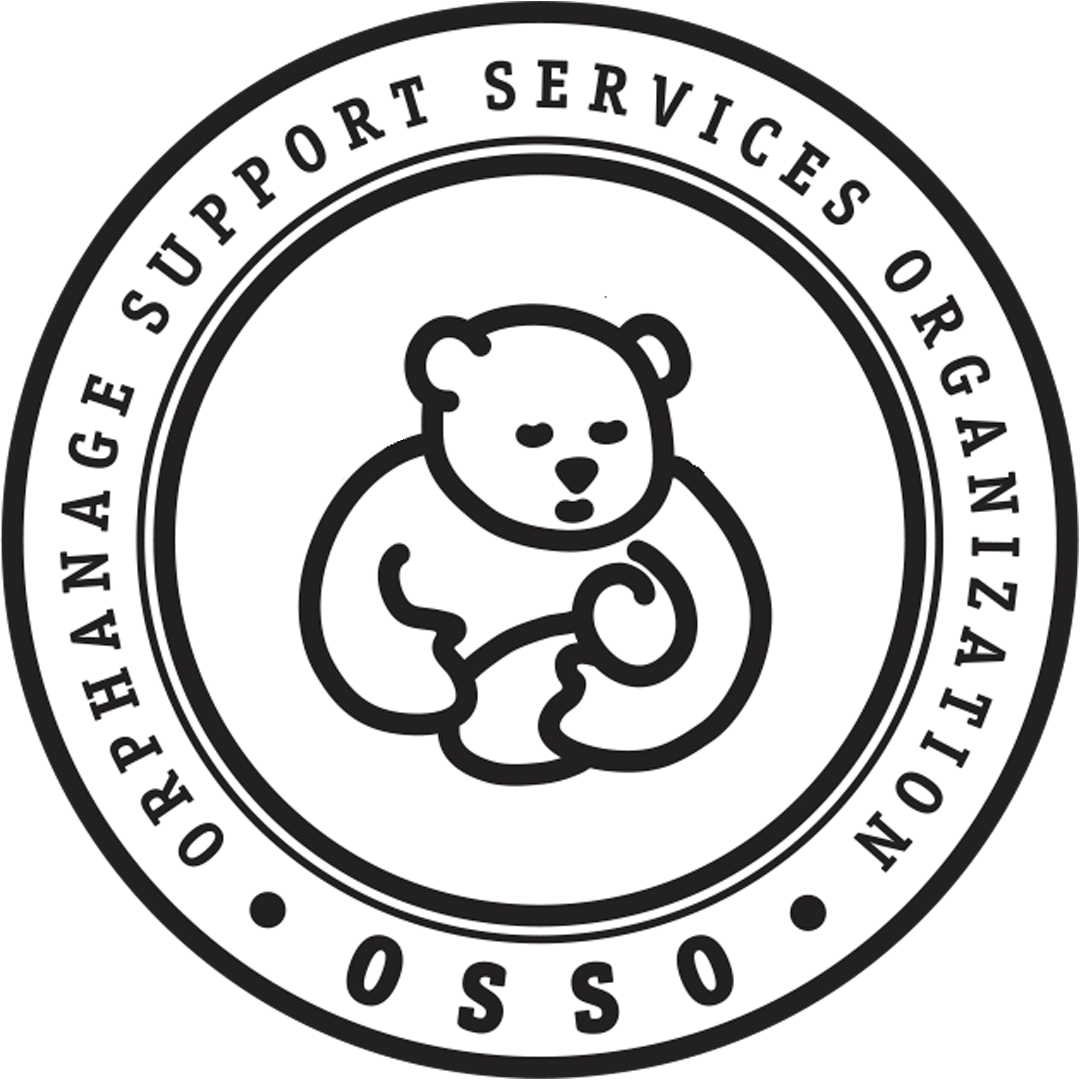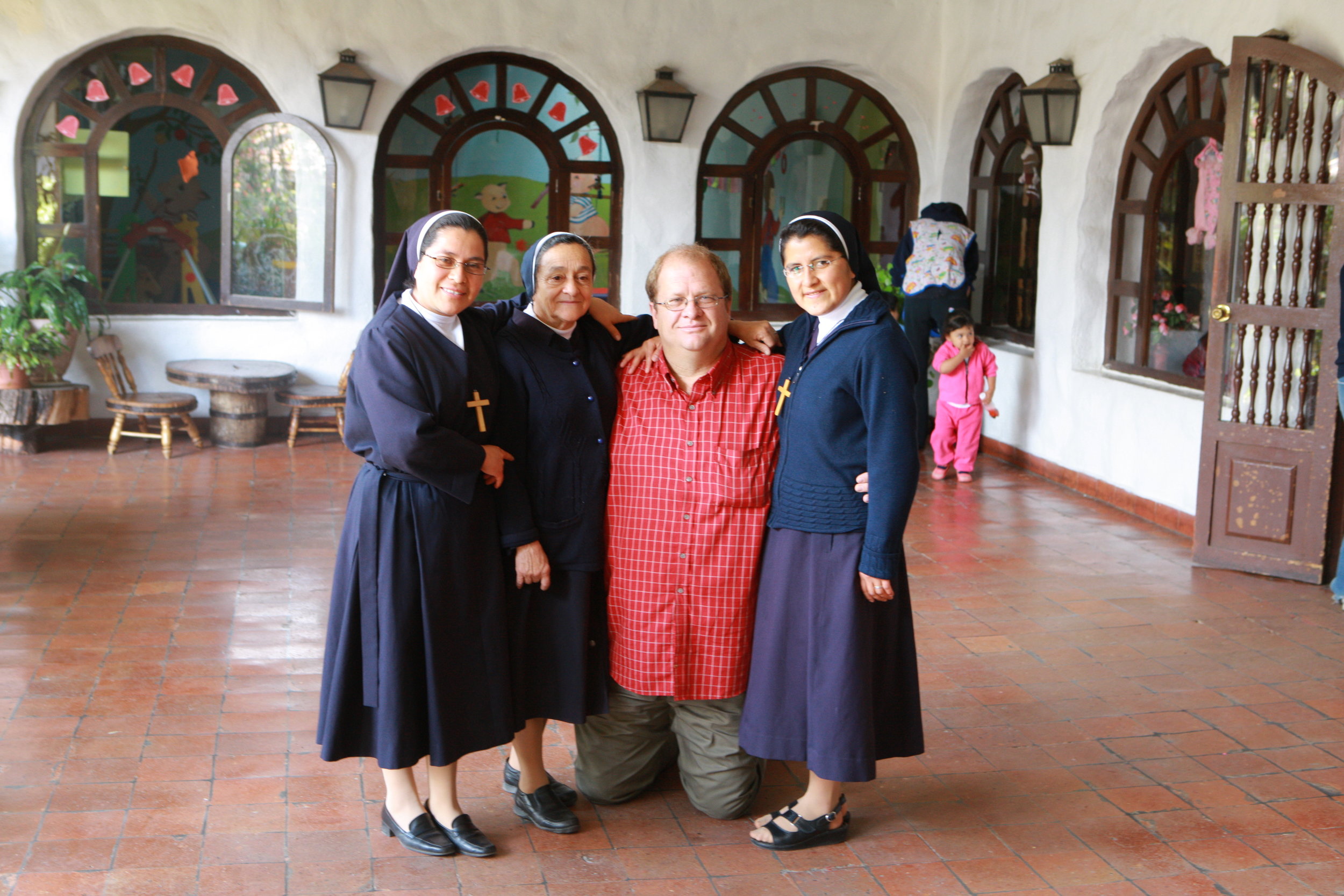“What do you do at Christmas that is important?” she asked.
The question was simple enough, but I wanted to be careful with my answer. I have known Myra* since she was a little girl in a girl’s orphanage. She is now in her twenties with a job and doing fairly well but still quite alone. My Christmas traditions, on the other hand, all have to do with family and sharing what she most lacked.
Rex pictured with one of the girls who also grew up in the girls' orphanage (not Myra)
When I was slow to answer, she went on, “I started a new Christmas tradition last year. Every year I will buy some rice and take it back to the internado.”
Internado translates to “boarding school.” Many of the kids prefer not to use the term orfanato ("orphanage"). And, since most of the girls are school-age in the orphanage, I guess in a way, it is a boarding school.
“That sounds like a great idea,” I replied. I knew that at Christmas time the orphanages would have many people drop by with rice, flour, or sugar. These staples would often last for months.
She went on, “I can’t afford much rice, but for me it is important to do. They don’t know me at the orphanage anymore, though. All the nuns I knew have died or have been transferred. They don’t let me past the front gate, but that’s okay.”
We then talked about the nuns she had known. I still kept in touch with many of them. The nuns are usually transferred every few years to another orphanage, school, or hospital. I told her how the various nuns we both knew were doing.
After a lull in the conversation, she said, “I miss Sor Mariana* most, especially since she died.”
“She was wonderful,” I answered.
Rex on his knees pictured with orphanage nuns (not Sor Mariana)
Sor Mariana was the first person I met at the girls' orphanage. She was tending the front gate when I first came to the orphanage with my two little boys. She was sitting in an old wooden chair with keys to the gate in her hand.
As I approached, she called out, “I’m Sor Mariana. I’m not in charge. I’m too old and blind to do anything important; I just keep the door. If I do anything more, my blood pressure or diabetes will kill me. Come in.”
In time, I would realize Sor Mariana’s first words of greeting exaggerated her uselessness and poor health.
“I’m supposed to keep out mala gente ('bad people'),” she went on. ”But in my experience, foreign giants with kids don’t rob old women and orphans, so come on in.”
“What do you miss about Sor Mariana most?” I asked Myra.
“She was just always there at the door. She let me out when I left for school. She was there to let me in when I came back. If I wanted to talk or just not feel alone, she was in her chair by the front door. Even when I was not with her, I would think of her in her chair and know she was there.”
An orphanage nun (not Sor Mariana)
I had heard other girls talk this way about Sor Mariana. She was always at the front door. There were always several little girls standing around leaning against her or sitting at her feet as she braided their hair or just listened. She was everyone’s favorite.
“It’s funny,” Myra went on. “When I gave the rice, I didn’t feel like I was giving it to the little girls. I was giving it to Sor Mariana.”
Since my conversation with Myra, I have wondered, “What do I do at Christmas that is important?” With all that I do, I hope I can remember Sor Mariana. In spite of her claim that she did not do anything important, she did that which is most important. She loved others and let others love her.
*Names have been changed.
This blog post is tenth out of a series of 12 Christmas stories by founder Rex Head. Read the other stories below.













